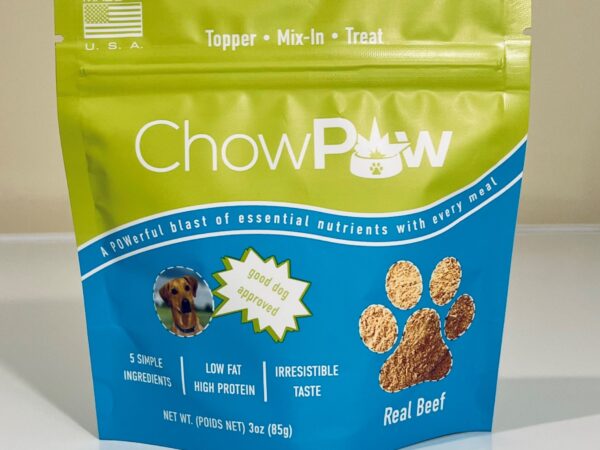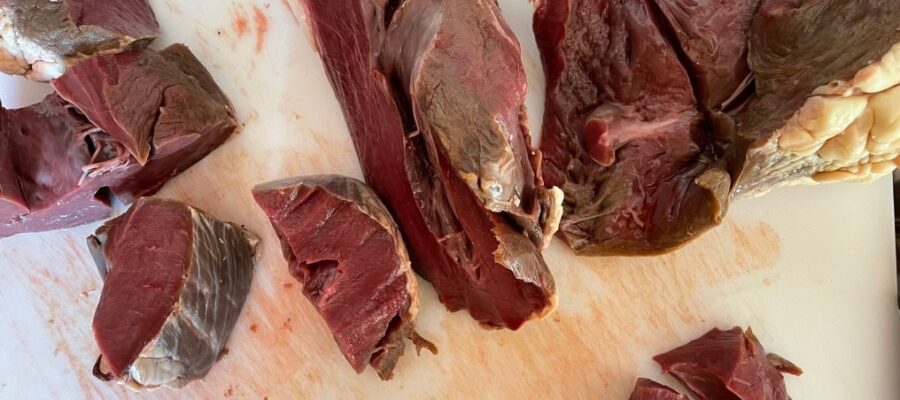
Unleashing the Future of Dog Nutrition: Exciting Trends in Research
Our dogs deserve the best nutrition to support their health and well-being. While we’ve come a long way, the science of dog food is far from settled. Exciting research is emerging, with the potential to transform our understanding of canine nutritional needs. Let’s dive into some of the most fascinating areas and explore how the latest discoveries might shape the way we feed our furry friends in the years to come.
The Gut Microbiome: A New Frontier
Just like in humans, a dog’s gut microbiome – the vast community of bacteria and other microbes residing in their digestive tract – plays a critical role in overall health. Research is digging deeper into this complex ecosystem:
- Probiotics and prebiotics: Scientists are identifying specific strains of beneficial bacteria (probiotics) and the foods that nourish them (prebiotics). Studies suggest these could improve digestion, boost immunity, and even impact behavior. For example, a 2021 study published in the journal Frontiers in Veterinary Science found specific probiotic strains reduced anxiety-related behaviors in dogs.
- Gut-brain connection: The gut and brain are intricately linked, influencing mood, anxiety, and cognition in dogs. Research is exploring how the microbiome impacts mental well-being, potentially leading to new diet-based strategies to support emotional health.
Personalized Nutrition: It’s Not Just for Humans
We all know our dogs have unique personalities, but could their dietary needs be just as individual? Research is exploring the potential for personalized nutrition:
- Biomarkers: Researchers are looking into using blood, urine, or stool analysis to identify specific nutritional needs, deficiencies, or sensitivities. This would go beyond breed-based guidelines and potentially allow for truly customized food formulations.
- Tailored diets: The goal is to one day formulate diets based on a dog’s specific biomarker profile, breed, age, lifestyle, and health conditions. Imagine a future where you could order food designed just for your furry friend, ensuring optimal health.
Raw vs. Processed: The Debate Continues
The popularity of raw food diets for dogs continues to climb, but their benefits and risks are still being investigated. Research is focusing on:
- Long-term effects: Some pet owners swear by the benefits of raw diets, but we need more long-term studies comparing these diets to conventional kibble or cooked alternatives to understand the impact on overall health throughout a dog’s life.
- Pathogen control: Raw diets carry the risk of contamination with potentially harmful bacteria like Salmonella or E. coli. Research is examining safety standards and best practices to minimize risk for both dogs and the humans who handle their food.
- Nutritional balance: There are concerns that homemade raw diets might not provide all the essential nutrients dogs need for long-term health. Research is essential to determine if and how these diets can be formulated to ensure proper nutrition.
Beyond Basic Nutrients: Novel Ingredients
Researchers are investigating ingredients beyond the traditional proteins and grains, seeking out new nutritional powerhouses:
- Superfoods: Ingredients like microalgae, mushrooms, and even insects are receiving attention. These offer potential antioxidant, prebiotic, and protein sources that could expand our options for healthy dog food.
- Food as medicine: Specific functional foods or supplements are being studied for their potential to manage health conditions like joint pain, allergies, and cognitive decline. Research into the therapeutic aspects of food is a promising avenue.
The Ethical Ingredient: Sustainability Matters
As pet owners become more conscientious, the sustainability of dog food is an increasing concern. Research is seeking out environmentally friendly solutions:
- Alternative protein sources: Insects are rising in popularity as a sustainable protein option in pet diets, and their nutritional value is being thoroughly evaluated. Other novel meat sources could also offer solutions with a smaller carbon footprint.
- Reducing waste: Food waste is a global issue. Researchers are developing innovative ways to upcycle food byproducts, potentially turning them into nutritious ingredients for pet food.
How You Can Help
While researchers continue to make strides in the lab, you can play a role at home:
- Stay informed: Follow credible sources (e.g., veterinary journals, university research, reputable pet blogs) on the latest nutrition studies. This will help you stay up-to-date on promising new developments.
- Talk to your vet: Discuss any interesting research with your veterinarian and its potential applicability to your dog’s health and diet. This ensures any changes you consider are safe and appropriate.
- Participate in studies: Some universities or pet food companies conduct feeding trials or research studies. Consider enrolling your dog to help contribute to the science of dog nutrition!
Important Note: Research takes time, and not every exciting study leads directly to immediate changes in how we feed our pets. Always consult your veterinarian before making significant dietary changes for your dog, even if the idea is inspired by the latest science.
The Future of Dog Nutrition
This overview just scratches the surface of the exciting work underway in dog nutrition research. As science progresses, we’ll gain a deeper understanding of how food impacts not only physical health but also the mental well-being and longevity of our canine companions. Armed with this knowledge, we can make even more informed choices to help them live their best lives, full of health, vitality, and plenty of tail wags.






